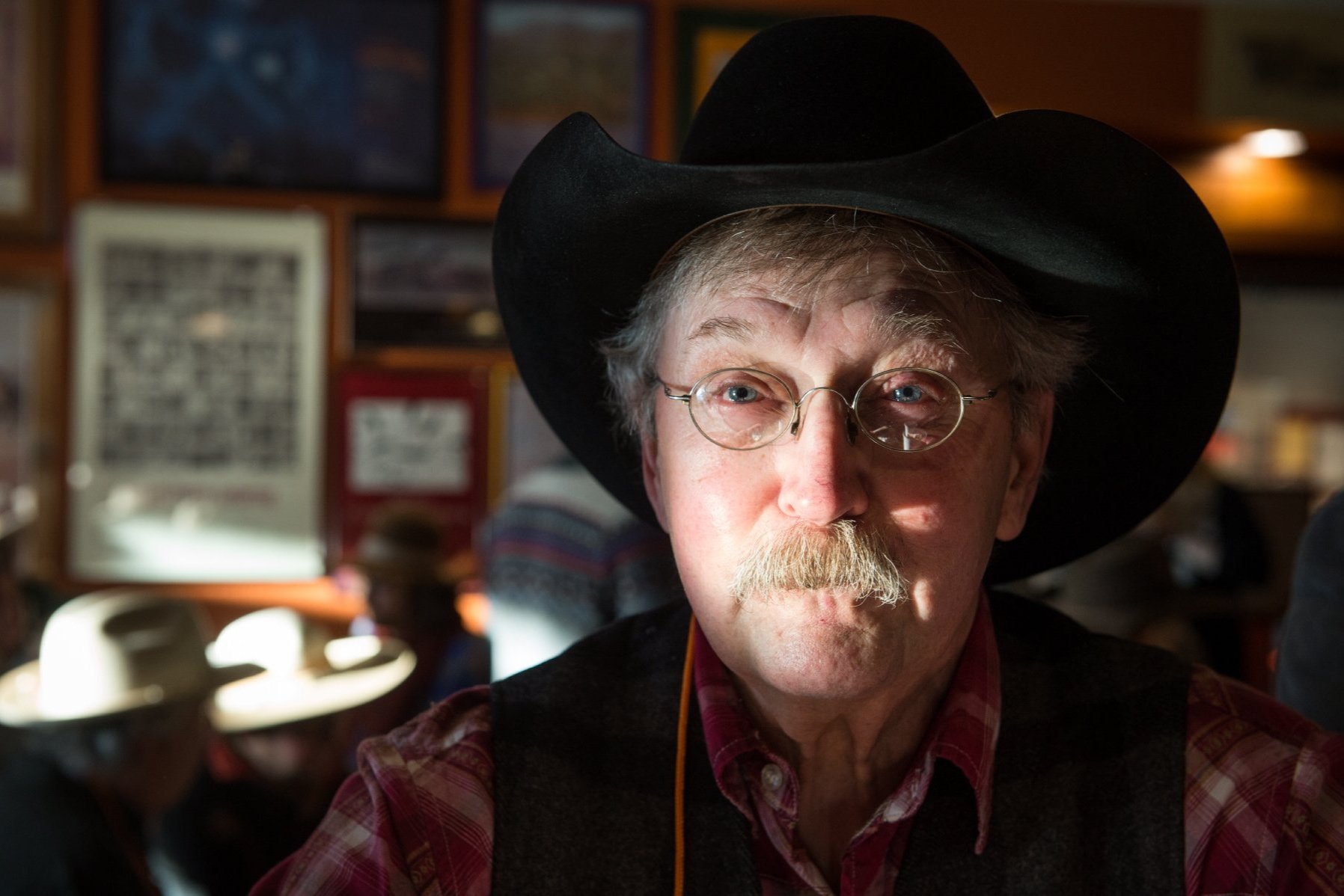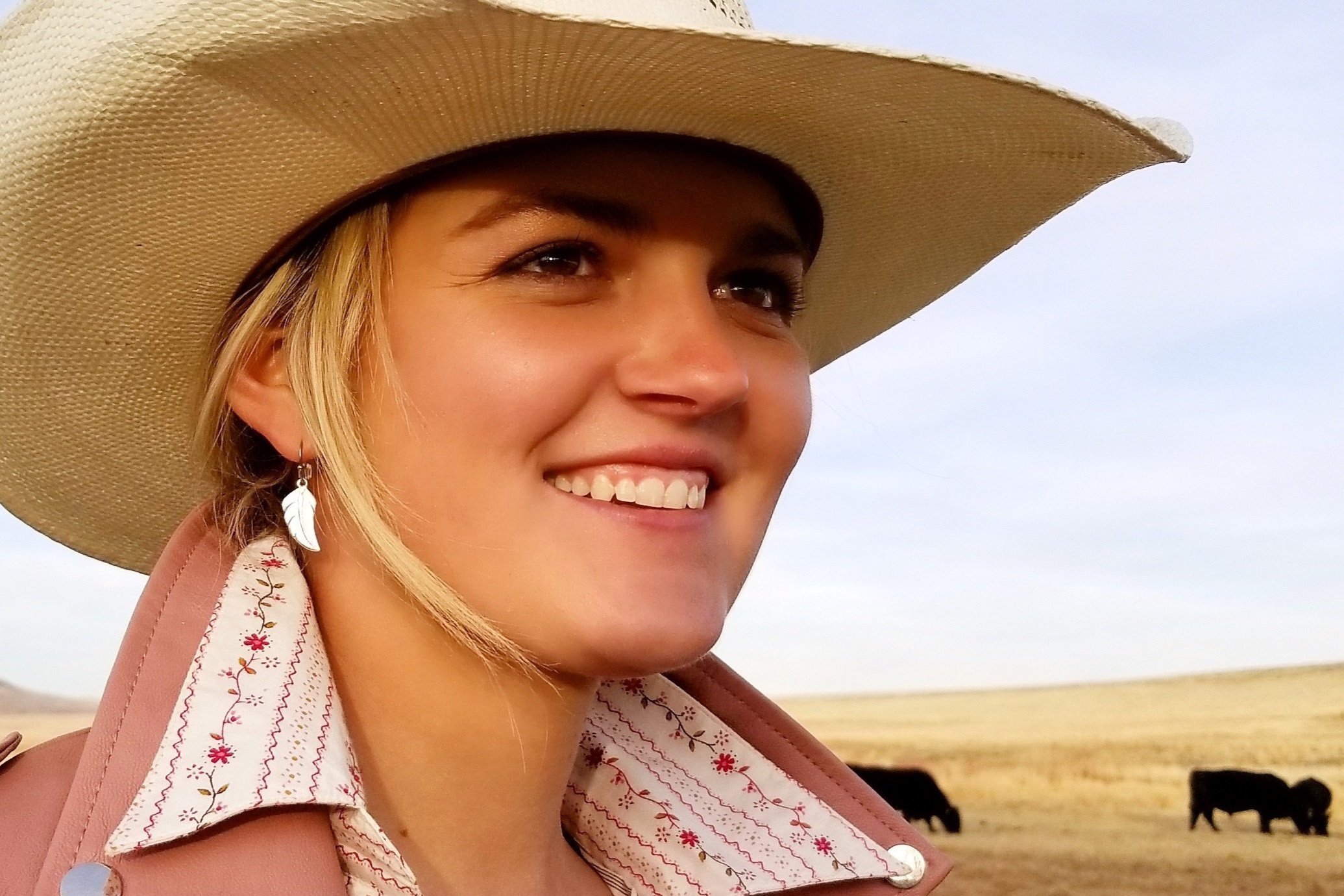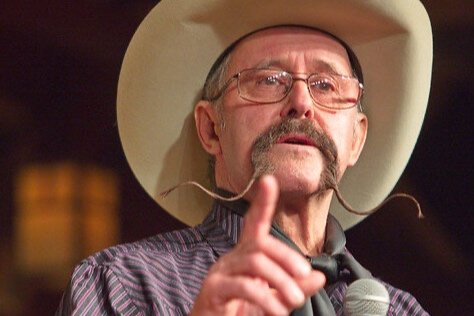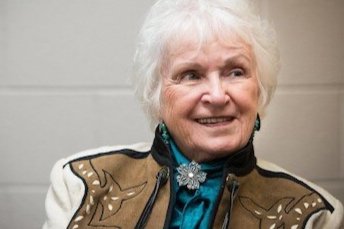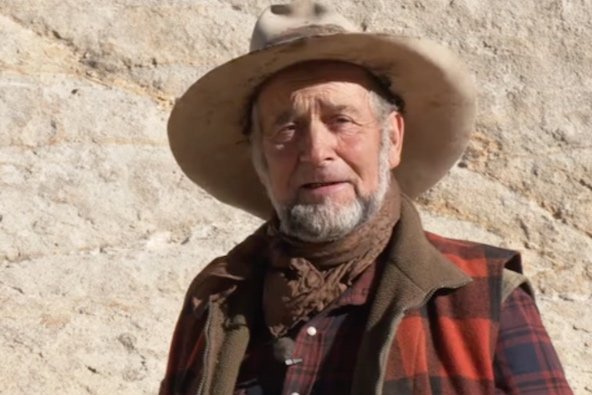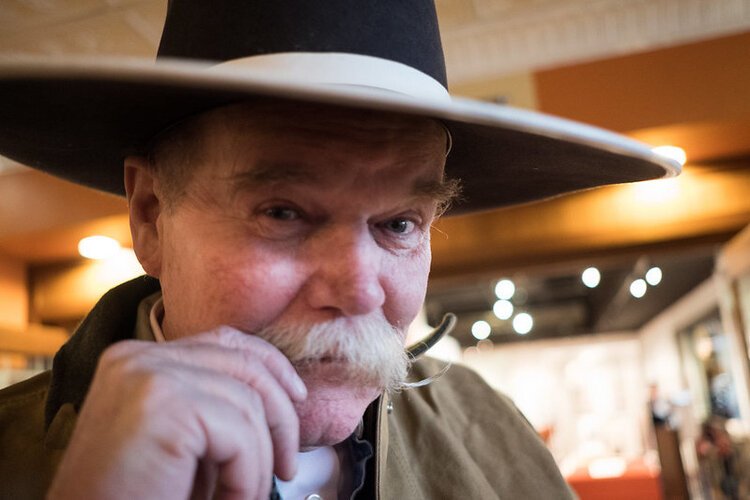Got a Question? Ask A COWBOY POET!
OctOBER 2023
This month, the columnists shoulder a weighty question about the knowledge imparted through learning “old-fashioned” skills. They seem in agreement that such skills aren’t “old-fashioned,” but rather, as Bill might say, simply “mind-boggling” to most. As the poets show, boggling the mind, stretching one’s time, and heeding the subtle know-how of those around you (be they elders, or cows) is well worth it.
"Old-fashioned skills" are sometimes dismissed by young people because the time required for mastery is greater than a more modern alternative.
What old-fashioned skills have you picked up that were worth the extra time to learn? How did you get started?
–Weighing Tradition
DW Groethe:
Here we go again...
As a lot of you know I came to the cowboyin' life later in the game than most. That being said, most've what I've learned is the day-to-day chore kinda stuff. But by watching various ranching outfits through the years one thing has stood out to me. The ones that work best take a deep pride in their connections to ranch life and their history with it. And they get that way by passing along all the stories to each ensuing generation. I have a poem that sums it up best for me. It's called "Generations." I wrote it back in the mid-1990s when I was dating a gal who came from one of these families. She drew a picture of her father taking one of his grandsons on his first horse ride and it got me to thinking...
Here's a bit of it...it's the kid reminiscing years later about his granddad.
Generations
For a while he wouldn't say nothin',
just let the ol' day kinda roll
with the soft creakin' saddle,
horse hooves an' the cattle,
tails switchin' an' bellerin' low.
Then sooner than not he'd start talkin'
and pointin' out now an' again
'bout why things were done,
how his dad was the one
who started this place way back when.
Teachin' me what weren't in books,
'bout horses an' people, the ranch,
an' things that just come
from years of hard livin'
out here where livin's a chance.
An' you learn to be careful
with all that you got
an' get some respect for each other.
That family an' friends
should be loved a whole lot
have patience an' trust one another.
Well, the years they just sorta slide by.
Now my daughter's got her little guys.
I find it's my turn
to help young cowboys learn
Of the ranch an' its wherefore and whys.
It's a matter of preservin' our way
an' in small part it'll help me repay
for the learnin' I found
when I made the round
with Grandpa way back in my day.
-DW Groethe
This is the kind of traditional thing that I thought of when I read your question. Hope
it works for you. Thanks for asking,
dw
Annie mackenzie:
While I haven’t mastered any of these skills, I do see the value in them. The first is being able to read a cow, the next would be reading a horse. There is an argument that could be made that reading people is also a skill, but that’s one I’m not sure I’ll ever be able to conquer.
Cattle are the business that we are in, and that is why I would place it at number one. You can build enough corrals and buy enough equipment to eventually overpower a cow. However, being able to truly handle cattle and put them where you want them is an old-fashioned skill that I believe many people have let go by the wayside. If you have enough patience, you can put a cow anywhere you want. You just have to wait her out, and read where to put pressure and when to release that pressure. Today the key phrase is “time is money” and people don’t want to spend the time to get a job done. People want to put cows where they want, and they want to get it done fast. Cows, however, can only walk so fast and if they speed up it’s usually an attempt to get away from you in whatever way they can.
If you can put an effort into handling cattle, and take the time to create a line of communication between species, you can accomplish more than you ever thought possible. Reading cattle from atop a horse can be especially difficult. You’re not only trying to communicate to the cow which direction to go, but also tell the horse where to be, to make that happen. I suppose it is an “old-fashioned” skill to sort and move cattle horseback, but it is one that I have been working on since they let me start working cows on the ranch. It’s one that I hope someday, someone, will say I have mastered.
Bill lowman:
I'm a might bit astray to comment on your question of "old-fashioned skills," but am very impressed by your thoughts. All of my "old-fashioned" skills came as the title of "growing up." My three siblings and I grew up the utmost of remote, backcountry hicks in society of the time. We did it all by ourselves, by hand, year around. Store-bought, town items were foreign to us. We lived off the land on venison, grouse, and garden produce. We hand ax cut our own cedar fence posts and broke and trained our own ranch cow horses. We mined lignite coal from our creek for winter heat, and a thirty-two-volt wind generator was our only power. A telephone was decades and miles away.
But yes, time marches on. No matter how remote cowboy life can be, managing time is of much more importance to us and our next generation than it was in the past. The greatest revolution that I can see is of the four-wheelers and side-by-sides taking over much of the saddle horse's duty, whether the cowboy admits it or not. It is an effective time management tool.
Hopefully to complete your question, one skill that I learned from my dad was the art of developing fresh spring water seeps to install into stock tanks for cattle watering. My dad was an expert at it, and I'm proud to say I've inherited that reputation. It's time-consuming and mind-boggling to most.
yvonne hollenbeck:
Of course, being a woman, some of the best old-fashioned skills I learned were from my mother, who taught me to cook from scratch and always have enough food on hand so as to be able to “throw on a feed” at a moment’s notice. Living on a ranch most of my life, these skills have come in quite handy. It may take a little longer (sometimes not) but cooking and baking from scratch not only tastes better but saves a tremendous amount of money.
I don’t know if you can call it skills, but many pieces of advice handed down from our parents need to be learned and adhered to by the younger generations…things such as: always keep your gas tank over half full (especially in winter); always pay your taxes before they are delinquent; don’t buy anything unless you can pay for it; always try to hold over a hay supply from year to year; always tell someone where you are going (especially in rural areas).
dick gibford:
On weighing tradition: I can't speak highly enough about traditional arts and crafts. These gems are what mankind has to show for itself. Handmade crafts are a product of love, and it don't get no better than that. I grew up around cowboys, breaking horses to ride, cowboying, and hanging out with the elders of the cowboy tribe. Early on I became attracted to the many articles of braided rawhide horse gear.
I braided my first 60-foot reata when I was 16, after getting ahold of a fresh steer hide from a 1200-pound critter the neighbors had butchered. And with some advice from a Wyoming cowboy named Newt Wright (who lived on our ranch) and from book by Bruce Grant, I waded into that bloody hide with a sharp knife and got ’er done. Rawhiding is a great traditional cowboy craft that has always been there for me to help earn my way between cowboy jobs on ranches. May it survive for a long time!
waddie mitchell:
Traditions are what my family, friends, and peer group are all about. That's because the ranching traditions came from common sense, tried-and-tested methods, and the need of specialized equipment for specialized needs to get things accomplished. I am lucky my ranch life afforded me many opportunities to learn old traditions.
I'll start at eight years old, when I learned the cowboy tradition of milking a cow.
When I was twelve, Sammy Dick came by and asked if I'd like to learn how to rawhide. I still stick my knife in a log.
At thirteen, a ranch hand taught me to shoe horses. I also mowed, crazy raked, and buck raked with a team. I also learned to drag logs for firewood.
At fourteen, I started my first colt and started playing in a forge.
At fifteen, I started working leather. I'd build headstalls, chaps, and vests. I'd cover stirrups and horns with rawhide.
At sixteen, I fulfilled my own tradition of planting my face in the dirt trying to impress the girls by riding (getting on) bucking horses.
At seventeen, I was much too smart for school so I pulled out with the wagon, etc etc etc. So as you can see, so much of what is done is best done that way. Good ol' proven, preferred, dependable tradition.
But I can't say that it was all done from or for tradition, it still was and has long been just the way it was and still is done.


